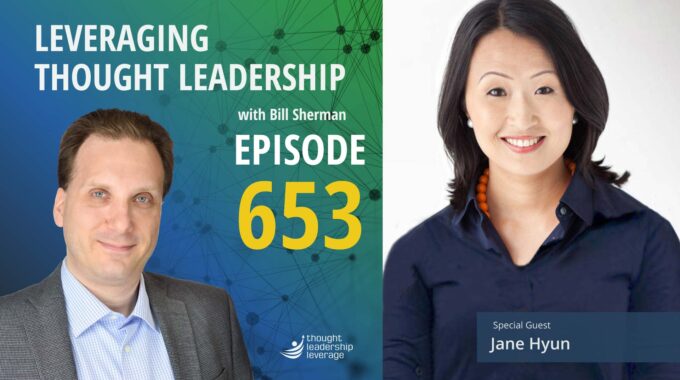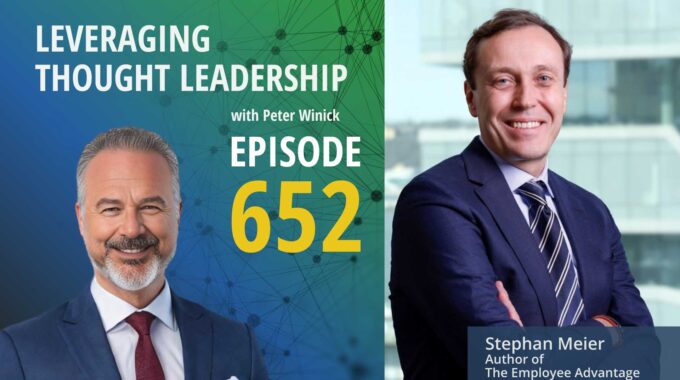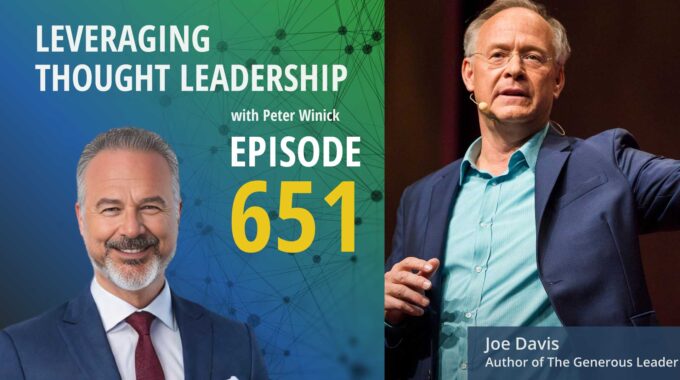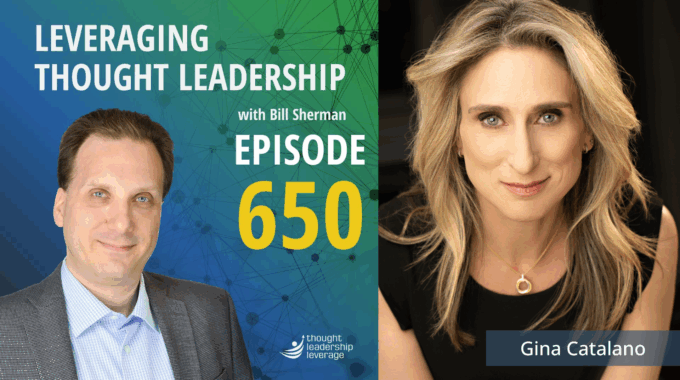The Hidden Barrier to Engagement and How to Break Through This episode unpacks how cultural…
From Concept to Cash Flow | Michael McFall
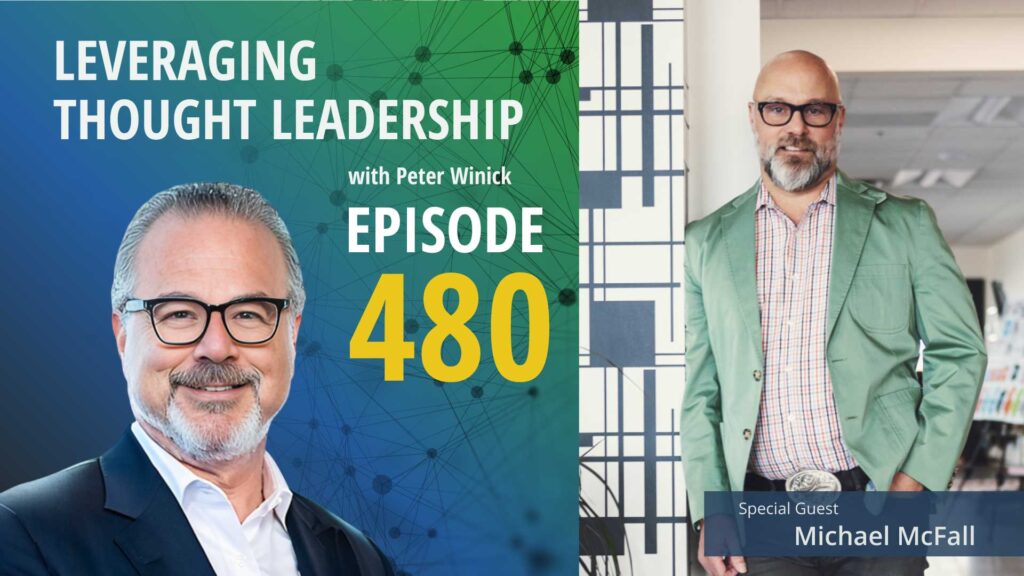
Taking your entrepreneurial dream to reality.
An interview with Michael McFall about how his books became the manual for franchise hopefuls.
Do you think that all you need to be successful is a great idea?
Well, think again.
The million-dollar idea is a myth. Even with a great insight in hand, you still have to take it to market and prove it has value.
To discuss what it takes to become a success, we’ve invited Michael McFall, the co-Founder and co-CEO of BIGGBY Coffee. He is also the author of Grind: A No-Bullshit Approach to Take Your Business from Concept to Cash Flow and has a second book coming soon, entitled: Grow: Take Your Business from Chaos to Calm. Together, these books cover what you’ll need to know to go from startup to steady cash flow.
Michael talks about his start as a minimum wage barista working in his partner’s coffee shop, and how that relationship grew to a partnership. That partnership launched a company that now has 340 locations with more than 100 more, coming in the next twelve months!
Having spent the last 27 years helping others launch businesses, Michael felt it was time to take that accumulated knowledge and codify it in his first book. He explains how revenue is the guiding principle, and you have to have the right mentality to take a product to the marketplace. In addition, Michael shares how you have to understand your own, personal strengths and weaknesses. When you do, you can find ways to supplement your weaknesses, and leverage your strengths.
This episode is packed with advice for entrepreneurs, new and established, to elevate and help them become stronger leaders.
Three Key Takeaways:
- A business book can be a method of self-selection. If people read it and agree with it then they might be a good fit to work with. If they don’t, then it’s best they move on.
- Leadership means turning authority over to others, allowing them to grow into leaders, themselves.
- Revenue generation is the guiding principle. You have to sell. If you are not comfortable with that you might not be suited to entrepreneurship.
If you need a strategy to bring your thought leadership to market, Thought Leadership Leverage can assist you! Contact us for more information. In addition, we can help you implement marketing, research, and sales. Let us help you so you can devote yourself to what you do best.

Transcript
Peter Winick And welcome, welcome, welcome. This is Peter Winick. I’m the founder and CEO at Thought Leadership Leverage and you’re joining us on the podcast, which is Leveraging Thought Leadership today. My guest is Mike McFall. Mike is co-CEO of Big B Coffee, which is the third largest coffee franchise in the US. He’s the author of an original book entitled Grind, which is a practical guide to Starting a New Business Path. The MBA goes right to the nuts and bolts. And without further ado, let’s just dive in. How are you today, Mike?
Michael McFall Doing great. It’s cold here, but, you know, I’m a Nordic creature. I enjoyed it.
Peter Winick We’ll have another cup of coffee. I think you know where to get that.
Michael McFall You get plenty of that.
Peter Winick So, books like yours. And I’ll tell you the category, I’m putting that in, meaning they come from, you know, real life experience are always really interesting to me because you’ve got, you know, academics that write books that are very theory based, consultants that are write books that are based on methodologies. But your grind is obviously based on the Big B story. So maybe tell us what the origin story.
Michael McFall Well, you know, I think the interesting slash sexy part of my origin story is that I started as a minimum wage barista in our first store and I worked for my partner.
Peter Winick Well, and that’s when minimum wage was in 40 bucks an hour.
Michael McFall Yeah, I was. Yeah, we were. I think I was billing at about five and a quarter at that point, you know.
Peter Winick Yeah, exactly the difference. Yeah.
Michael McFall In 1990 that would’ve been 1996. And so, you know, I started there and, and, you know, really I mean, frankly, I fell in love with the business, meaning I loved showing up to a coffee shop and working and it’s the rare, rare job that you can have where you actually get to meet, make people happy. You know, people walk in the coffee shop and, you know, you treat them in a certain way and you deliver a product and people just genuinely walk out happier than when they came in. And so when my partner approached me about take more responsibility, maybe becoming a manager in the business, I was on my way back to graduate school at that point. And so, you know, I politely turned him down or said I wasn’t interested, but we ended up we ended up having a conversation, kind of a job interview of sorts. And what that turned into was a four hour walk around East Lansing, around the campus at Michigan State University. And that turned into a handshake at the end of that walk where we agreed to become partners. And, you know, that handshake led to the formation of a company. And that formation is the company that we all work for today that we all report into and is the franchise or of our company or I should say, the franchise or of our brand Big B coffee.
Peter Winick And how many Big B is not. You know, it’s a little bit more regional than obviously some of the other players. How many units did that?
Michael McFall I think we just eclipse 340. So we’re like 341, you know? And then probably the most challenging and exciting number is the 147 that are signed to be opened in the next 12 to 18 months. And that’s a that’s.
Peter Winick A be over 500. Yeah, yeah.
Michael McFall Yeah. We’ll be over 500 within two years in that and you know it’s Yeah. And you know those are, those are contractually obligated stores to be opened. These are some, you know, pie in the sky developments hypothetical.
Peter Winick Yeah.
Michael McFall Agreed to. I mean these are, these are little tricks.
Peter Winick So the book was born out of sort of your journey as a leader at the organization. Right. And I think it touched on touches on culture, touches on leadership, etc., because on the one hand, it’s a quick service restaurant business, high turnover. We’re hearing again and again and again about the challenges in the labor market. So what is it about the culture that you’ve curated and created and hope to keep alive and the franchisees that you’ve codified in the book that we can all learn from?
Michael McFall Well, you know, this book is the first book is called Grind, and that one is very much about the start up mentality, Right. Which is okay. And so how do you take a concept to your first day of positive cash flow and that mentality? The what you’re talking about, though, is actually, you know, the premise of my second book, which comes out in May of this year in that it’s called Grow. So the first book is great, the second book is growing. And that one is about what we need to do as leaders in order to build environments to take on the challenges of the day, which is making sure that our teams are healthy in and their people are healthy and then are people want to show up to work and they do show up to work and they’re in a good space when they do. Right. And that that’s a challenge.
Peter Winick So let’s roll back to grind then in terms of, you know, there are lots of folks out there that talk about a side hustle and do what you’re passionate about, whatever. And the first thing that you say when you started to explain it was how to get the cash flow positive, which doesn’t seem sexy, but is breathing isn’t sexy either, and you stop doing it. So talk about that.
Michael McFall But I love the love. I love to call that correlation between breathing and cash flow.
Peter Winick What’s true. I mean, as a business, right? Yeah. You don’t think about it until there’s nothing left, whether it’s cash or breath. But. Yeah. Yeah.
Michael McFall Well, you know, so what I’ve done is, you know, I’ve spent the last 27 years of my life assisting other people in opening businesses. And, you know, I’ve lived it with them. And, you know, we used to do a 45 day call post opening in and go through and review where they were in how they were doing. And, you know, there are certain people, certain mentality, certain approaches that I’ve seen work. And then there’s, you know, some that I’ve seen not work. And so what I wanted to do is really capture the the mentality of the people that are able to start a business and make it flourish. And that’s what I try to do and grind. And the revenue generation is to me is the guiding principle you have to sell. And if you are if you are if you’re scared of.
Peter Winick And I think a lot of a lot of where I was going to go, I’m sure that a lot of folks that are entrepreneurial, they sort of skip that part.
Michael McFall Yeah, I know they do.
Peter Winick Like it’s all about, you know, like if you if you like to make ceramic bowls, go make ceramic bowls and put them on Etsy. But the whole point is if you can’t sell it in marketing, get an actual product or service in the actual hands of a paying customer, you’re done. It’s like, you know, there is a I don’t want to say a dark side to being an entrepreneur, but I think there’s this fantasy that’s portrayed often in not just the media, but books and things like that, where I think you need a solid dose of reality without that, you know?
Michael McFall Yeah, I call it the myth of the million dollar idea. Everybody, everybody thinks that they just have to come up with the idea and then the idea will be so good that the marketplace will accept it and buy it in by a bajillion of these things. The next thing you know, you’re doing an IPO and you’re rich, right? And that is the farthest thing from the truth there. You know, it is about it is about having a mentality of how you can put a product in a marketplace and iterate enough to get the consumer to pay attention to that product and understand the value of that product and then buy a lot of that product.
Peter Winick And that product. By the way, you have to have a basic and this is where good franchise work comes in, has to have a great model in terms of margin, profitability, scale, consistency, quality, etc.. Right? So oftentimes people have a great product and then they try to get it to market and you’re like, Yeah, it’s not a great product because you’re selling something. You would have to sell that at $50 and your competitors are selling it instead. So therefore it’s just never going to be.
Michael McFall Yeah, And, and so I really spend a lot of time in the book and selling. I spent a lot of time in the book and doing. Diligence on yourself as the entrepreneur. You are the number one ingredient to the success of your business, period, and you need to spend time doing due diligence on you, understanding your strengths, your weaknesses, understanding how you’re going to, you know, be powerful in the business and how you’re going to be a detriment to the business. And then you need to supplement your weaknesses and then leverage your strengths. And so that’s chapter one, right? Which is to me, people do not give it enough credence that the entrepreneur, the individual person is incredibly powerful to the success of the business and that I go into it in that chapter of title of chapter two is sell more shit, like just sell more shares. I want to be an entrepreneur, sell more shit. They asked Calvin Klein. You know, they asked Calvin Klein. They said, Hey, you know, what kind of plan did you have in place? And, you know, did you do a lot of research? And, you know, all this stuff about this this traditional thinking about how to start a business? And he goes, No, we just sold a lot of coats.
Peter Winick For.
Michael McFall Calvin Klein, Right? Like they had Calvin Klein. What are they? They had named for him, those coats that they saw and they sold a billion of them. And he’s like.
Peter Winick Yeah, yeah, yeah.
Michael McFall We sold coats. Like, that’s all we did is we sold coats, and then it turned into Calvin Klein. But so, so, you know, to me, the entrepreneurial, you know, what you need to do to be a strong entrepreneur is figure out how to sell a lot of a product.
Peter Winick Love it.
Peter Winick If you’re enjoying this episode of Thought Leadership Leverage, please make sure to subscribe. If you’d like to help spread the word about our podcast, please leave a five-star review at ratethispodcast.com/ltl and share it with your friends. We’re available on Apple Podcasts and on all major listening apps as well as at Thought Leadership Leverage.com/podcasts.
Peter Winick So on that note, let’s think about this in a parallel path of this is your journey as a thought leader. Some would argue that’s a different type of entrepreneurial venture in terms of books and all that. What is your experience been like? What have you learned in this process of not just writing a book but marketing it, getting it out there, give it sort of a download on what that experience is different than coffee, right?
Michael McFall Well, you know what?
Peter Winick We all wake up in the morning and need it. Yeah.
Michael McFall And I tell you, I tell I tell my kids, as I tell you know, it’s like nobody gives a shit what you got to say, right? Nobody cares.
Peter Winick Full stop, right?
Michael McFall And you know, it’s like, but, but that doesn’t stop me from doing it because I really it’s cathartic for me. One, I really love the process of really trying to think through in this book was written as a you know, as a manual for my prospective franchisees and my current franchisees. Right. So who’s really.
Peter Winick Written for one moment, though? Because I don’t think a lot of people, most people, when they talk about the book process, are talking external. Right. But I love the fact that you mentioned the Arctic piece because it’s actually a forcing mechanism to get you to get really tight and really clear on your because you knew everything that you knew before you wrote this book. But then you had the challenge to say, Well, how do I communicate this in X number of chapters, X number of pages to make only the points that I want to leave out all this other extraneous stuff so that people can use this as sort of an operating guide, or because it’s in essence a sales tool for the franchise system.
Michael McFall Yeah, in many ways it is, you know, or I like to look at it as, you know, if you read my book and you connect with it and you agree with it, then I want you and I want you to self-select into my program. If you read my book and you think it’s a bunch of hogwash that don’t.
Peter Winick I’m not your guy, right?
Michael McFall I don’t want you. Right. So that.
Peter Winick From a sales process, going back to what you said before, I could read your book and go, Oh, this is crap or not for me, great. And we’re not going to engage. You just you can then move on to somebody who read the book and said, Wow, wow. I’m like, this is really I love what you’re saying. I love what you’re thinking. You’ve connected with me at a visceral level. Know I have a same belief system. Let’s talk. That’s a whole different game. Yeah.
Michael McFall Yeah, yeah. And so and then the cathartic piece. Yeah, you’re right. I mean, anybody who’s written a book knows how It’s really a challenge to figure out what to say and how to say it, you know? And I like that. I like that. I like that challenge. And, and I really enjoyed it. And so, you know, I’ve moved on in the book to book two takes you from your, you know, what I call bootstrapping action or entrepreneurial phase, which, you know, you’re just barely cash flow and you’re just getting into that moment through all the way through to sustainability, which I’m which I define as the leader. The entrepreneur could get struck by a bus tomorrow in the business will continue to thrive. And so it’s this, it’s this arc, right? You have to become a really strong leader within the organization, and then you have to then turn yourself into irrelevant in the organization. And that is.
Peter Winick So stay there for a minute because so many companies, organizations, brands, etc. are built around whether deliberately, intentionally or not, you know, the ego of the founder. And one of the beauties of any sort of franchise system is it’s not about you, right? It’s replicator goal. Replicator systems are processes that are applied in a certain territory that we know to be true will yield a fairly predictable outcome. So it’s not about freedom of thought about the founders story. So I love your story of sort of, you know, barista to CEO because I’m sure that that’s a story that can trickle down every day as a franchisee is opening in the marketplace, right Like that, That works. But people know what to do every day when they get the story. And I’m sure your phone’s not lighting up every day like, Hey, what do I do when this happens? There’s systems for that.
Michael McFall Yeah, And I think a lot of leaders that I’ve two primary things when I talk about this. One, a lot of leaders need to be needed and so they actually thrive on the dopamine of 25 text messages in the morning and five phone calls and this.
Peter Winick Yeah, yeah.
Michael McFall And then the other the other thing that I that I am an advocate of is, is not talking as much as you do otherwise known as shut up. So leaders need to shut up. Leaders need to shut up. And if you’re a strong leader, you will say less words and the more powerful we become, you’ll see even less words. Because what that means is, is that you’re turning that you’re turning that authority over to others. And that’s what true leadership.
Peter Winick And sometimes that that shut up is, you know, someone you could jump in, solve the problem for them and jump out in 5 seconds because you’ve seen it before or whatever. But you need to give them the runway, the freedom to make a mistake, not a bet, the house mistake. So that they learned that from themselves, Right?
Michael McFall Yeah, I think there’s a there’s an error in that thinking, too, though, Peter, and that is that most leaders assume that they know the answer. And so I’m just going to let them fall and skin their knee so they can learn the lesson. But that thinking is, is that, you know the answer. And we don’t. We think we do, but we don’t always. Right. We can have input and so on. But and in this idea of the primary purpose of a leader is to create other leaders. To me, that is what we’re about. That’s what we should be of.
Peter Winick The compounding effect of that.
Michael McFall And so by making that what you were doing, being quiet and letting other people work and other people lead, and then maybe coaching afterwards, you know, and working with that leader afterwards on certain things or certain approaches. That to me is leadership and that’s that. I mean, the book’s about a bunch, but it’s that’s one of the primary threads in book number two, which is the idea of making yourself irrelevant and creating strong teams and strong leaders.
Peter Winick Well, this has been fantastic. Any final words or thoughts on folks that are pondering, Hey, there’s something special about my entity, my company, or I’ve always thought about writing a book. Any words of wisdom?
Michael McFall Well, write the book. I mean, you know, if nothing else, it makes you really think about what you believe in and what you want to say to the world, Right? I mean, I love that. And then and in terms of entrepreneurship or starting companies, I mean, yeah, it’s spent a lot of time thinking about if it’s for you. And because there’s also the fallacy of freedom that that being an entrepreneur is going to make, you know, yeah, at the end of the day, you know, ten, 12, 15 years later, you’ve probably got more freedom than you do today. But the ten years to get there can be really demanding and.
Peter Winick Really.
Michael McFall Difficult. So. So I call it the fallacy of freedom that people go and it becomes very four for freedom. And it’s like, yeah, at the end of the day, if you make it. And you’re ten years down the road. You, you, you could get the freedom or more freedom. But there’s a there’s a long, long road to get there.
Peter Winick Well, I would also argue that the freedoms are not for everybody. There’s a certain point in certain people’s lives where you need more structure, a regimen, and you learn from that, even though it might feel like, you know, five-year-olds want to have ice cream for breakfast, it’s not like that’s necessarily a good idea.
Michael McFall Right. Right. Exactly. Is that for everybody? I mean, I tell people all the time, I give anything in the world to have somebody tell me what I’m supposed to do today in order to make my business. I would love to have 20 sitting right here next to me saying, Mike, do this today and your business will be that person doesn’t exist.
Peter Winick Well, it’s easy, Mike. Here it is, Mike. Some more shit. Yeah, I learned that from a smart guy today. That’s all you do, man.
Michael McFall Pretty much, Yeah.
Peter Winick Well, this has been fantastic. I appreciate your time. Appreciate your sharing your journey with us. Thank you so much.
Michael McFall All right, Peter, thank you. Appreciate it.
Peter Winick To learn more about Thought Leadership Leverage, please visit our website at ThoughtLeadershipLeverage.com to reach me directly. Feel free to email me at Peter at ThoughtLeadershipLeverage.com and please subscribe to Leveraging Thought Leadership on iTunes or your favorite podcast app to get your weekly episode automatically.


